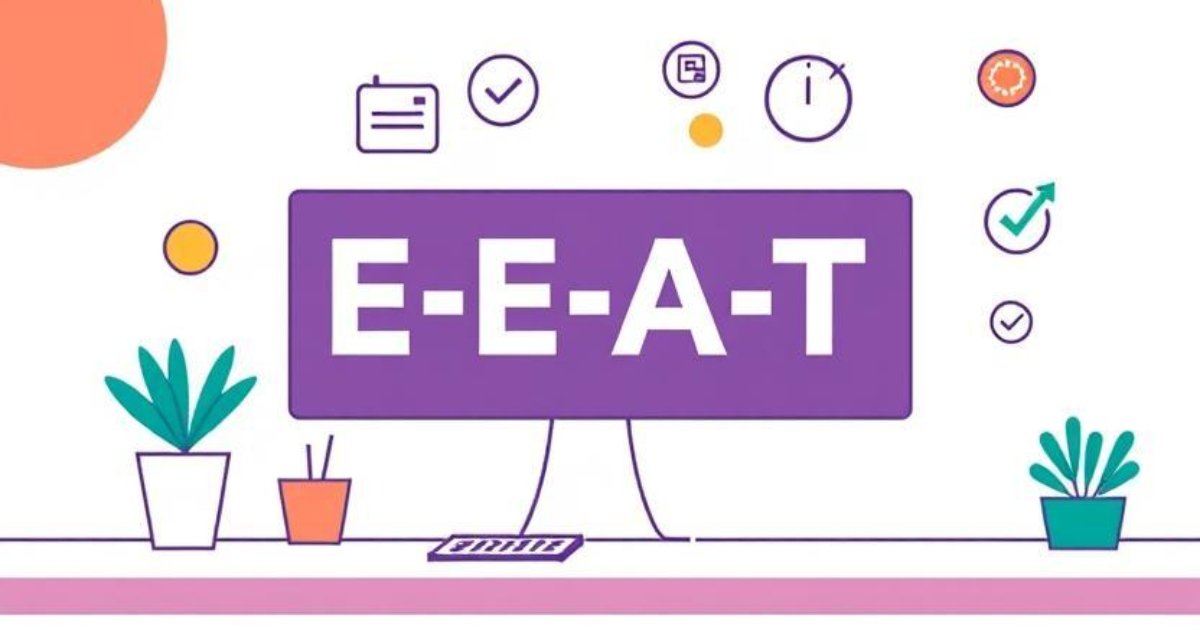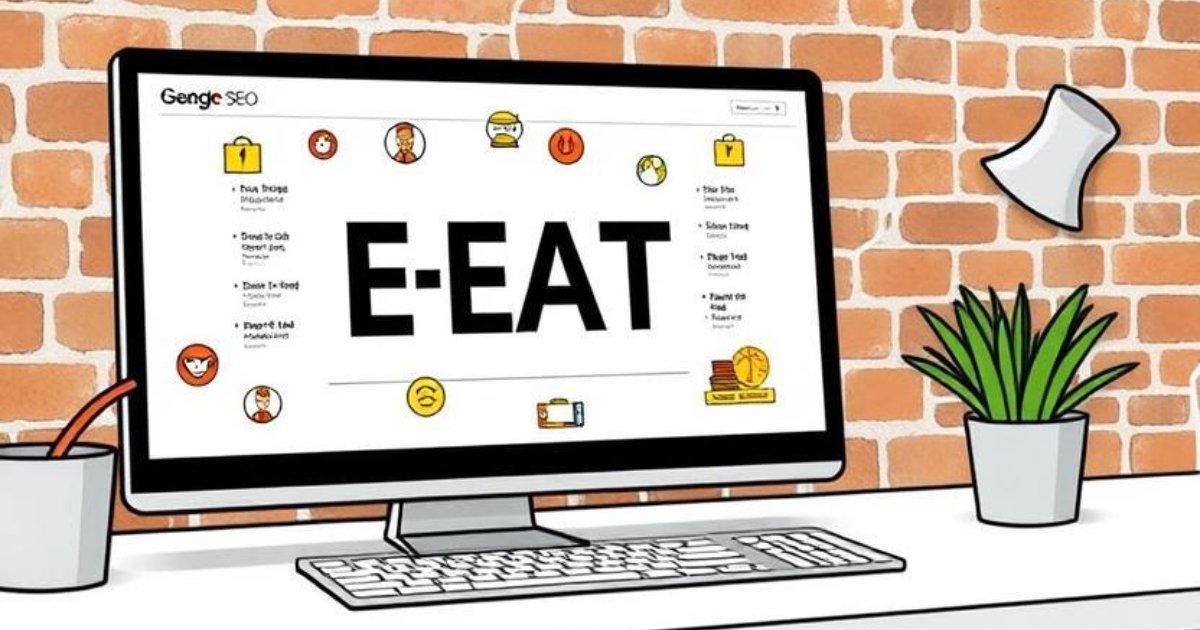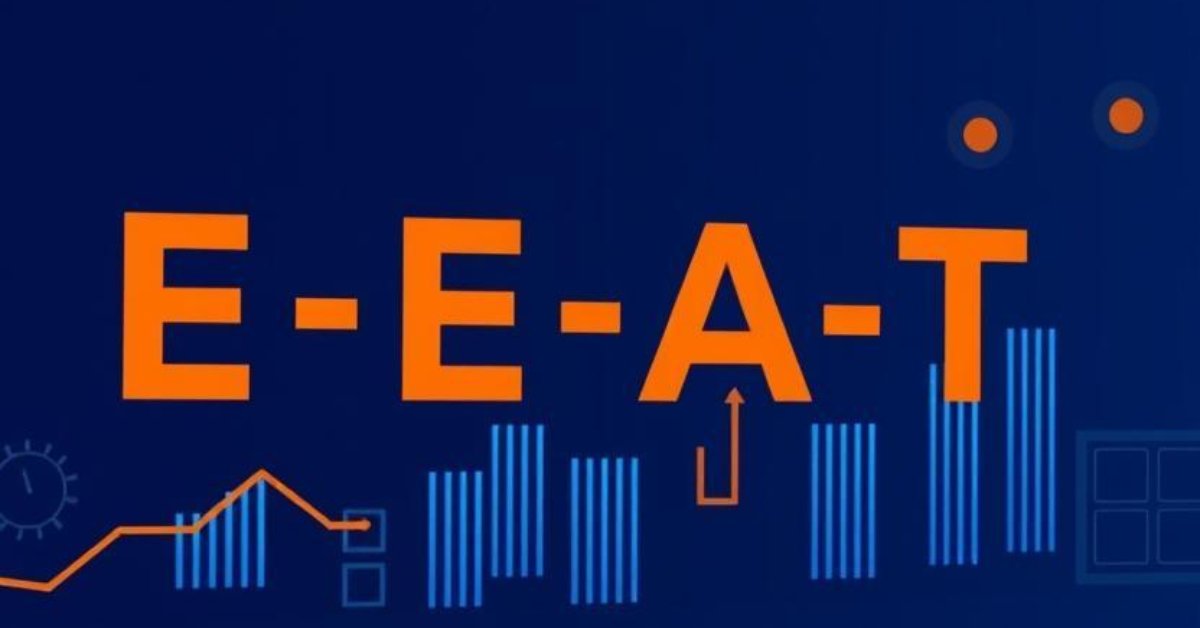In 2025, the online world is more competitive than ever. Every month, millions of new websites are created. Businesses are fighting to appear on Google’s first page.
But here’s the truth: ranking is no longer just about keywords or backlinks. Google now values trust above all. And the key to building trust is E-E-A-T — Experience, Expertise, Authoritativeness, and Trustworthiness.
Understanding E-E-A-T is essential if you want your business to succeed online. This guide explains what E-E-A-T is, why it matters, and how to optimize for it in 2025.
What is E-E-A-T?
Google introduced E-A-T (Expertise, Authoritativeness, and Trustworthiness) years ago. In late 2022, it added Experience, creating E-E-A-T.
- Experience – Does the content creator have real-world experience with the topic?
- Expertise – Is the author qualified and knowledgeable?
- Authoritativeness – Does the website or author have recognition in their field?
- Trustworthiness – Is the content accurate, reliable, and safe for users?
In 2025, these four factors are the foundation of Google’s ranking system. Trust is the ultimate goal, built through experience, expertise, and authority.
Why Trust is the Core of SEO in 2025
Google’s mission is to organize the world’s information and make it useful. With the rise of AI content, fake news, and misinformation, trust has become the main ranking factor.
Here’s why:
1. AI Content Floods the Web
AI tools like ChatGPT, Gemini, and Claude make it easy to generate content. While this is powerful, it also creates low-quality or duplicate articles. Google now favors websites that users can trust.
2. User-Centric Algorithms
Updates like the Helpful Content Update reward content that is accurate, first-hand, and reliable. Sites lacking trust signals drop in rankings.
3. Brand Reputation Matters
Businesses that build trust through reviews, social mentions, and authority content gain higher visibility. If users don’t trust your brand, Google won’t either.
How Google Measures E-E-A-T in 2025
Google does not give websites an official “E-E-A-T score.” Instead, it looks for clues that show your site is trustworthy and reliable. Key factors include:

- Content Quality
Your content should be unique, clear, and based on real experience. Avoid copying from other sites. Write in a way that shows you know your topic well. - Author Transparency
Show who writes your content. Include detailed bios, credentials, and examples of expertise. This helps users and Google trust your information. - Citations and Sources
Link to reliable references and trusted websites. Back up your claims with facts. - Brand Mentions
Be recognized online. Mentions on social media, forums, or news sites show that people know and trust your brand. - User Experience
Make your website fast, mobile-friendly, and easy to navigate. Clear menus and clean design help users stay longer. - Reviews and Ratings
Positive reviews on Google, Trustpilot, or Yelp show that others trust your products or services. - Backlink Quality
Links from authoritative and relevant websites strengthen your site’s credibility.
If your website follows these practices, you are building trust—the type Google rewards in search results.
Experience: The New SEO Superpower
Experience is the newest addition to E-E-A-T. Google asks: Does the writer have real-world experience?
Examples:
- A travel blog by someone who visited the destination ranks higher than a generic AI-written guide.
- A health article by a certified doctor with case studies outperforms a general wellness blog.
Businesses should highlight:
- Real-life experiences
- Customer stories
- Practical insights
Authenticity now beats automation.
Expertise: Knowledge Builds Trust
Expertise is about demonstrated knowledge, not just claims.
Ways to show expertise:
- Author profiles with credentials
- In-depth guides backed by research
- Interviews or guest appearances on trusted platforms
- Consistent niche-specific content
Google and your audience notice genuine expertise.
Authoritativeness: Recognition in Your Industry
Authority comes from being recognized by others.
Examples:
- A tech blog cited by Forbes or TechCrunch gains authority.
- A local restaurant featured in Google News or local press ranks better.
In 2025, focus on topical authority. Cover a specific niche consistently to become a trusted voice.
Trustworthiness: The Final Ranking Factor
Trust ties everything together. Even with experience, expertise, and authority, you won’t rank without trust.
Ways to build trust:
- Use HTTPS for security
- Provide accurate, up-to-date information
- Show clear contact details
- Encourage reviews and respond to feedback
- Be transparent about content authorship
Trust is fragile. One false claim or misleading practice can harm your rankings.
How Businesses Can Optimize for E-E-A-T in 2025

- Update Content Regularly
Keep your website fresh. Refresh old posts with new data, case studies, or examples. This shows search engines that your content is current and trustworthy. - Showcase Author Bios
Add detailed author profiles. Include credentials, experience, and links to professional accounts like LinkedIn. This builds credibility and trust. - Build Brand Presence
Get your brand mentioned in local directories, industry forums, and press outlets. The more your business appears online, the more authority it gains. - Leverage User-Generated Content
Collect reviews, testimonials, and customer stories. Real feedback adds authenticity and improves trustworthiness. - Focus on Content Depth
Write long, detailed guides instead of short, generic posts. In-depth content provides value and signals expertise to search engines. - Invest in Technical SEO
Ensure your website loads fast, has no broken links, and works well on mobile. A smooth technical experience improves both rankings and user trust. - Earn High-Quality Backlinks
Use guest posts, press releases, and partnerships to get links from reputable sites. High-quality backlinks signal authority to search engines.
The Role of AI in E-E-A-T
AI can help create structured content, but trust still needs a human touch.
- Use AI for research, outlines, and drafts
- Add personal experiences and expert insights
- Fact-check before publishing
AI supports SEO, but humans build trust.
Real-Life Examples of E-E-A-T
- Medical sites: Content from certified doctors ranks higher than anonymous blogs.
- Finance blogs: Articles by licensed advisors outperform generic blogs.
- E-commerce stores: Verified reviews, transparent policies, and strong branding matter.
- Local businesses: Restaurants with reviews, social mentions, and press coverage rank better.
Why Google’s Focus on Trust Benefits Users
Google wants to show users the best, most reliable information. That is why trust is at the heart of how it ranks websites. When a website is trustworthy, users can feel confident that the content is accurate and helpful.
A focus on trust means that Google carefully checks sites for quality. Sites with false information, spam, or misleading content are pushed lower in search results. This protects users from wasting time on unreliable sources.
Trusted websites often provide clear facts, expert advice, and honest reviews. This makes it easier for users to make good decisions. For example, when looking for health advice, users want sources that are accurate and safe. Google’s trust-based ranking helps deliver that.
Trust also improves the overall online experience. Users spend less time guessing what is true and more time getting value from their searches. They can rely on Google to guide them to information that matters.
In short, Google’s focus on trust benefits users by providing reliable content, reducing misinformation, and making searches faster and more useful. Everyone wins when the information online is trustworthy.
Final Thoughts
In 2025, E-E-A-T shows that trust is the ultimate ranking factor. Experience, expertise, and authority all feed trust.
Businesses that want to thrive online must focus on transparency, credibility, and authenticity.
Working with the Best SEO Expert and a reliable seo service provider in BD can help you rank higher and earn user trust — the most valuable currency online.
Frequently Asked Questions
-
What is E-E-A-T in SEO?
E-E-A-T stands for Experience, Expertise, Authoritativeness, and Trustworthiness. In 2025, Google uses E-E-A-T to rank websites that users can trust. The new “Experience” factor focuses on the real-life experience of the content creator.
-
Why does Google care about trust?
Google wants to show safe and correct results. Websites that seem reliable rank higher. Sites that appear untrustworthy are ranked lower.
-
How is E-E-A-T different in 2025?
In 2025, Google focuses more on real user experience and practical expertise. AI and automation help Google check content quality, not just links or keywords.
-
What is the “Experience” factor in E-E-A-T?
Experience means the author has real-world knowledge. For example, a doctor writing about health or a chef sharing recipes shows true experience. Google values content from people who actually do what they write about.
-
How can a website show Expertise?
Expertise is shown with accurate, detailed, and well-researched content. Certifications, credentials, or industry recognition prove expertise. Google checks the author’s background and authority.
-
How to build Authoritativeness online?
Authority comes from reputation. If other trusted websites link to your content, Google sees your site as an authority. Publishing high-quality guides, research, and case studies also helps.
-
How does Trustworthiness affect rankings?
Trustworthiness is about safety and honesty. Using HTTPS, sharing clear contact info, privacy policies, and correct data builds trust. Google favors sites users can rely on.
-
What is AEO and how does it relate to E-E-A-T?
AEO, or Answer Engine Optimization, is optimizing content to answer user questions directly. E-E-A-T supports AEO by making sure answers are accurate, trustworthy, and authoritative, which helps content appear in Google’s answer boxes.
-
How do reviews and testimonials affect E-E-A-T?
Reviews and testimonials show real user experience. Positive feedback signals trust to Google. Honest reviews improve credibility and boost rankings.
-
Can small websites rank with E-E-A-T?
Yes. Small sites can rank if they focus on expertise, trust, and helpful content. Clear author info, quality writing, and accurate data matter more than site size.





